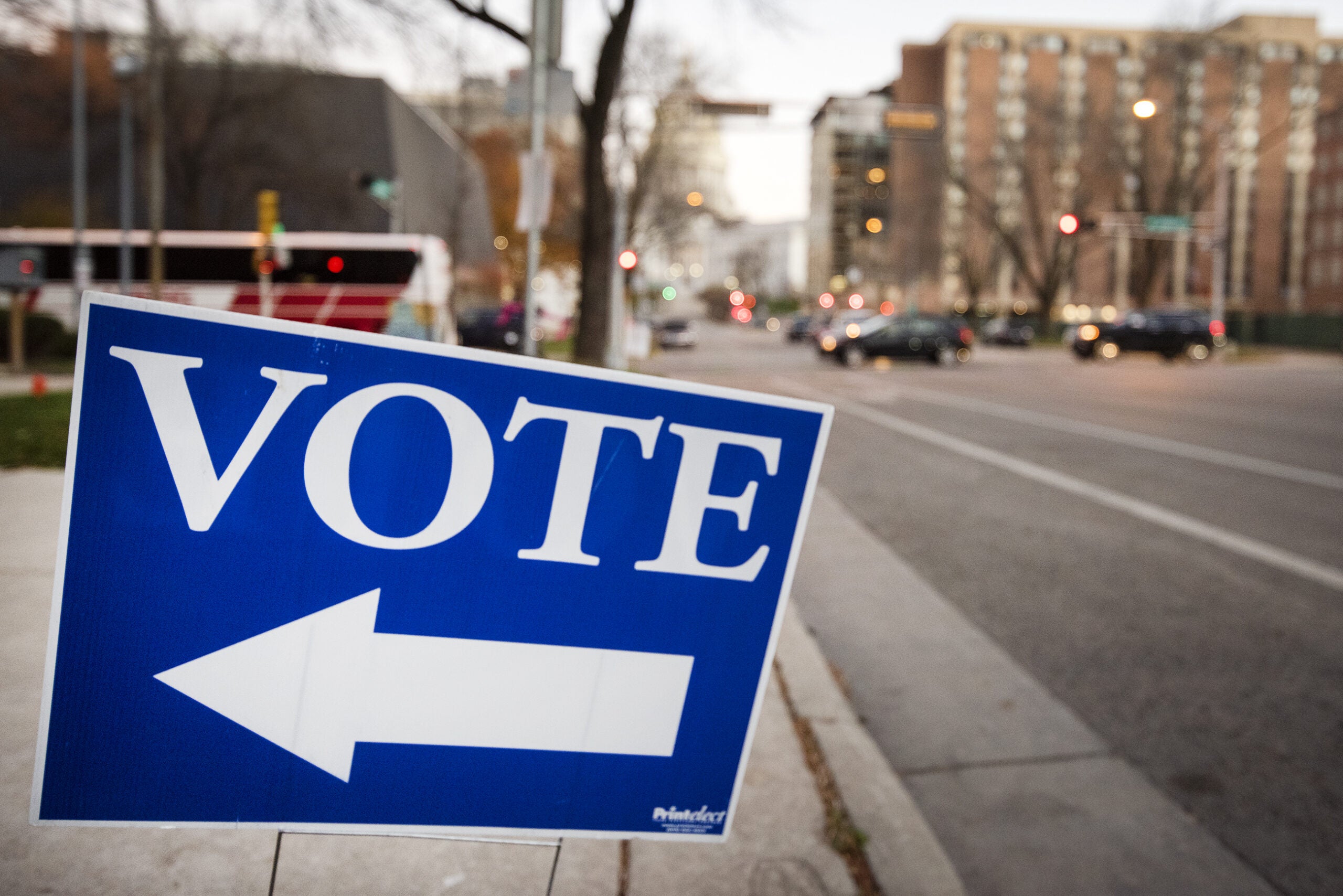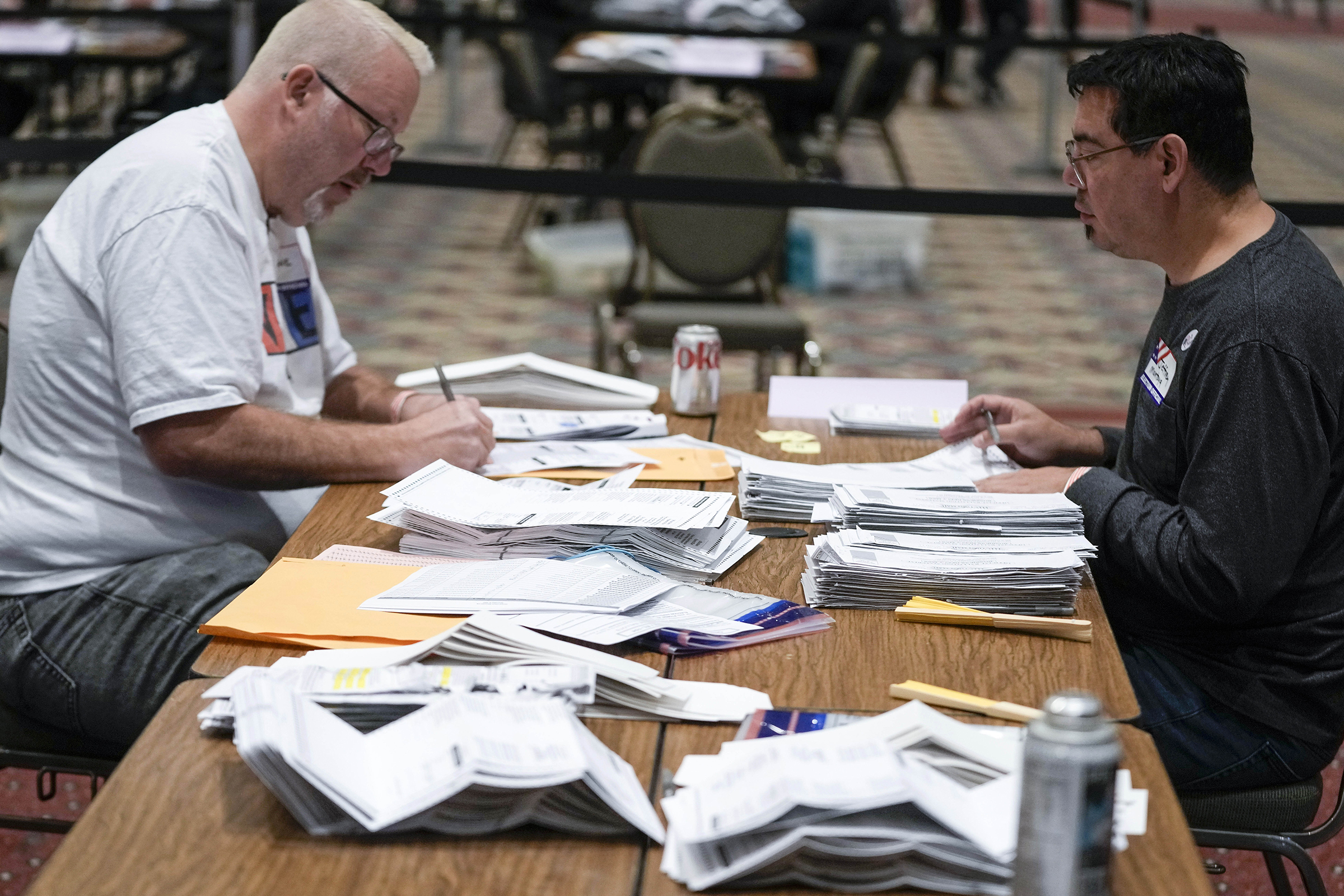Republican state lawmakers took testimony Friday from a conservative talk radio host, Republican officials and GOP-affiliated lawyers for an investigation into the integrity of Wisconsin’s 2020 presidential election, but didn’t hear from the state’s top election official, any municipal clerks or poll workers.
Only invited speakers were allowed to provide testimony at the hearing, which is part of an investigation into election integrity called for by Assembly Speaker Robin Vos, R-Rochester, shortly after Election Day.
Early in the hearing, Assembly elections committee chair Rep. Ron Tusler, R-Harrison, said lawmakers had “set aside our parties and our political preferences” to conduct the hearing, but while GOP-appointed members of the Wisconsin Elections Commissions spoke, no commissioners appointed by Democrats or nonpartisan state Elections Commission staff were invited to provide testimony. No liberal attorneys were present at the hearing, though their partisan counterparts spoke.
News with a little more humanity
WPR’s “Wisconsin Today” newsletter keeps you connected to the state you love without feeling overwhelmed. No paywall. No agenda. No corporate filter.
In a list of more than 10 committee witnesses provided by Tusler on Thursday, only one, Dane County Clerk Scott McDonell (identified as “Scott McDonald” in Tusler’s list), is affiliated with the Democratic Party.
Concerns Raised In Testimony Also Outlined In Unsuccessful Trump, GOP Lawsuits
During his opening remarks, Tusler said the committee would address issues that have been outlined in several Republican-backed lawsuits in the wake of the election. Those issues include an increase in indefinitely confined voters, clerks adding required information to absentee ballot envelopes, use of absentee ballot drop boxes and concerns about observer access at Milwaukee ballot processing locations.
So far, those lawsuits have been unsuccessful.
The Wisconsin Supreme Court, which has a conservative majority, has dismissed three state-level lawsuits brought by the Trump campaign or GOP groups. One of those lawsuits has been revived in a lower state court, where a circuit court judge ruled against the Trump campaign Friday morning.
Federal judges have dismissed one case about Wisconsin’s election and expressed skepticism about another. A ruling in the second case is expected any time.
Another lawsuit, filed directly with the U.S. Supreme Court by Texas Attorney General Ken Paxton, seeks to overturn election results in four swing states Trump lost, including Wisconsin. The court has asked for briefing documents on the case, but it’s unclear if it will consent to hear arguments.
Possible Election Law Changes Foreshadowed
During his testimony, Wisconsin Elections Commission member Dean Knudson, who was appointed to the commission by Vos, suggested several changes to state election laws as a result of increased scrutiny and concerns surfaced this year.
Those recommendations include abolishing central count locations for ballot processing, stricter rules for indefinitely confined voters, increasing the frequency of mailings that confirm whether a voter has moved in Wisconsin or out of state, clarifying law surrounding who is able to deliver or mail an absentee ballot for a voter and requiring a broader post-election audit of voting equipment.
Knudson rebuffed concerns about a so-called “ballot dump” in the early morning hours after Election Day and problems with Dominion brand voting machines in Wisconsin.
“There were no dumps of ballots during the night. None,” Knudson said. “There is no evidence of any fraud related to Dominion voting machines in Wisconsin. None.”
In addition to Knudson’s suggestions, Tusler called for a state Legislative Audit Bureau audit of Milwaukee election results, for the Wisconsin Elections Commission to remove “illegal procedures” from its manual for election officials and for measures to ensure that all cases of voter fraud “will be prosecuted to full extent of the law.”
“We believe these recommendations will restore the trust lost in the Nov. 3rd election.” Tusler said. “We believe it will better prepare our clerks for future elections and ensure that every vote counts.”
Any changes to state election laws would require the approval of Democratic Gov. Tony Evers.
Partisan Disagreements Over Election Highlighted
The hearing showed a clear split between Republican and Democratic state lawmakers over how they view the integrity of the 2020 presidential election.
While Republican testimony and lawmakers outlined concerns, Democrats pushed back on the hearing, calling it a “sham” and saying lawmakers’ time would be better spent addressing the COVID-19 pandemic in Wisconsin.
Democratic members of the committee, most of whom were calling into the proceedings virtually, “walked out” after about two hours.
“After a morning of wild conspiracy theories that went unchallenged and uncorrected, it is clear that today’s joint hearing is exactly the kind of disgraceful display that we all feared it would be,” the Democratic committee members said in a prepared statement. “It is clear that it does not focus on the real challenges facing our state, like addressing the urgent need for COVID-19 relief.”
Senate elections committee chair Sen. Kathy Bernier, R-Chippewa Falls, a former county clerk, said the hearing was aimed at gathering information.
“I recognize that most of us who ran elections, who continue to work in the electoral process, do the best we can,” Bernier said. “But that’s not to say that there isn’t some issues which we are here to listen to today and be open to making our system, our process, better.”
Evers certified Wisconsin’s election results Nov. 30. Wisconsin’s 10 Democratic presidential electors are scheduled to cast their votes for President-elect Joe Biden on Monday, unless a court orders otherwise in the meantime.
Wisconsin Public Radio, © Copyright 2025, Board of Regents of the University of Wisconsin System and Wisconsin Educational Communications Board.







